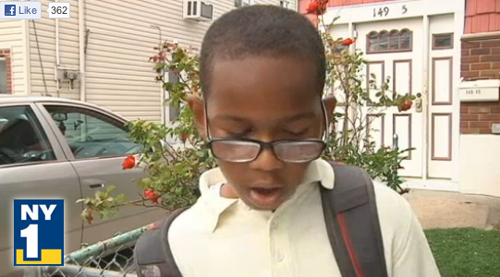Teachers get the short end of the stick. Their pay is terrible, the bureaucracy they work with can be overbearing and many of them have to deal with the modern terror of the helicopter parent. This is, of course, on top of difficult children, state testing and the constantly moving targets that are education initiatives. But, they can always count on politicians to be on their sides, right? Continue reading
education
Recently we ran a post about the best and worst degrees for getting a job. My comment was, “Does it count if I turned my two arts degrees into an accounting career?”
My undergraduate degree is in Communications and I have a Masters of Arts Management. What I would absolutely love to do is produce a multi-day music festival similar to Lollapalooza. Continue reading
Georgetown University Center for Education and the Workforce took a look at unemployment rates and college degrees and came up with a list of degrees that have a good chance of getting you a job and list that have a bad chance. Continue reading
20 year-old Dale Stephens dropped out of school in the 5th grade because he was bored. In his observation, school wasn’t really a place for learning — it was a place to discuss Pokémon. Determined to embrace his idea of learning he then created his own curriculum in lieu of a formal education. In subsequent years he’s gone on to build a library in his hometown, live in France, and work in Silicon Valley — despite having dropped out of school again. This time college. He now runs uncollege.org, a site for those seeking unconventional education, and has just published a book Hacking Your Education: Ditch the Lectures, Save Tens of Thousands, and Learn More Than Your Peers Ever Will, that tells millennials college isn’t the only way to gain success — it’s all about experiences outside the classroom.
Is this notion a stroke of simplistic genius or detrimental? Continue reading
Right now Gawker has a post up about a 15-year-old Staten Island girl who committed suicide after essentially being slut-shamed by her high school football team. As is becoming the macabre norm, the young girl took to Twitter leaving hints of her state of mind before carrying out the act two days later. “I cant, im done, I give up,” she said. What is going on? And why does it seem like “bullying” has taken on a whole new genesis in the last two decades? Continue reading
Ever on the cutting edge, the Paper of Record has published a fascinating piece about a white-hot new career: the Sorority Rush Consultant.
Time is money people! We broke it down so you can get a jump on the competition. Continue reading

Kameron Slade is in fifth grade at PS 195 in the Rosedale section of Queens. Given the freedom to choose a topic for a speech competition, young Kameron chose to write about same-sex marriage. He won his class’s competition and was expected to deliver his winning speech in a competition being held school-wide. The school’s principal put a stop to that, telling Kameron’s mother that the speech was inappropriate. Continue reading
In a speech to the United States Chamber of Commerce last month, Republican presidential nominee Mitt Romney laid out his grand vision for the reform of American education. At the core of his speech was “school choice”– a term that is usually refers to state-sponsored vouchers that can be used toward private school tuition. Romney’s plan, however, goes beyond just the privatization of the American education system. He wants students to be able to enroll in any school of their choice, public or private, with the aid of 25 billion dollars in federal funds. Continue reading
 New Yorkers this week are increasingly perplexed by a reading passage appearing in a standardized state exam for eighth-graders that at first glance appears to be an Aesop’s fable haphazardly rewritten by a 12-year old with ADHD. Yet despite the best efforts of Jeopardy winner Ken Jennings to answer the questions, his analysis was woefully limited in scope and failed to consider the far-reaching ramifications of the answer choices in the context of all available knowledge. Thus, we asked our fictitious team of self-proclaimed legal and economic experts to address the questions in greater depth, let’s call them Bill and Ted. The following discussion did not ensue: Continue reading
New Yorkers this week are increasingly perplexed by a reading passage appearing in a standardized state exam for eighth-graders that at first glance appears to be an Aesop’s fable haphazardly rewritten by a 12-year old with ADHD. Yet despite the best efforts of Jeopardy winner Ken Jennings to answer the questions, his analysis was woefully limited in scope and failed to consider the far-reaching ramifications of the answer choices in the context of all available knowledge. Thus, we asked our fictitious team of self-proclaimed legal and economic experts to address the questions in greater depth, let’s call them Bill and Ted. The following discussion did not ensue: Continue reading
On Tuesday, the United States Supreme Court announced that it would hear a case on affirmative action in university admissions. This case, like the landmark 2003 Grutter v. Bollinger decision, involves a white student who applied to a public university and was denied– and, according to the plaintiff, Abigail Fisher, minority students with lower scores than hers were admitted. In Grutter, the Supreme Court ruled that the use of quota systems for racial minorities in public university admissions was unconstitutional, but it also held that admissions committees may use race as one of a myriad factors that go into the admissions process– not unlike the way admissions committees favor students who are legacies or those who hail from Barrow, Alaska (so that they can claim in brochures that they attract students from all fifty states–and Guam!). In other words, race might be a factor that gives your application a little nudge toward the top of the pile, but it can’t be the sole determining factor in an admission decision. Continue reading




